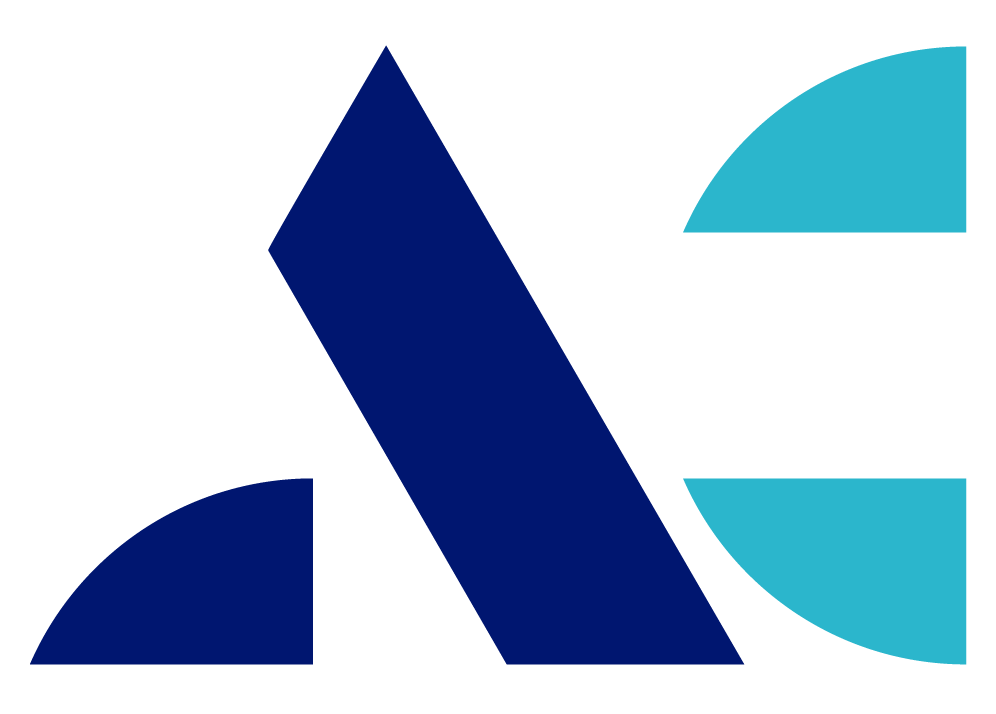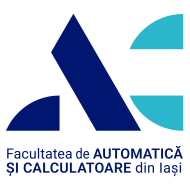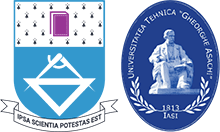I. Scope and objectives of the society
Art.1. The Society of Automatic Control Engineers (SRAIT) is a professional, autonomous, non-governmental and apolitical organization, having legal personality and being non-profit.
Art.2. The Automatic Control Engineers Society is constituted in accordance with the law and operates on the basis of this statute with its headquarters in Bucharest, Splaiul Independenței, no. 313, sector 6, Faculty of Automatic Control and Computer Engineering, Politehnic Institute of Bucharest. The company may have subsidiaries in all localities where they will be established.
Art.3. The purpose of SRAIT is to contribute to increasing the role and efficiency of automatic control engineers, in which purpose it aims its objectives contained in the following articles.
Art.4. SRAIT has as its main objectives:
a) Professional-scientific objectives
- Improving the professional training of all specialists and workers in the field of automatic control and technical informatics through debates, conferences, domestic and international scientific events, exchange of knowledge and technological experience ;
- It arranges its own documentation and information centers and makes it easier for SRAIT members to access information sources both domestically and internationally. Each university center will have an automated library housed inside the faculties of profile. ;
- Publish own publications that highlight top concerns in automatic control;
- Encourages the development of professional connections between interested parties in the domain of technical informatics and allied professions to advance the use of automation in the management of industrial operations. .
b) Educational objectives
- Improving the curricula in the field of automation and technical informatics, correlated with the specific requirements of industry and other sectors of economic and social activity, as well as to align the automation education in Romania with the one organized in the developed countries of the world;
- Organises for postgraduate and topical courses;
- Initiate contacts for professional guidance of future candidates in the field of automatic control;
- Contribute to interdisciplinary cooperation;
- Supports granting scholarships for students and teachers studying abroad;
- Supports exchanges of specialists with other similar organizations abroad for improving and training of SRAIT members .
c) Economic objectives
- Calls for the improvement of the legislation on the acquisition of copyright for technical and scientific creation;
- It promotes the tangible encouragement of innovative work in the automation industry;
- Collect funds for granting scholarships abroad for SRAIT members .
d) Technical objectives
- Establish and provide guidelines that are in line with widely accepted worldwide standards;
- Establish consulting committees in the field of automatic control;
- Participates in expert committees for the conduct of expertise and in any other work intended to define the direction and refine the technical activity management in the automation and technical informatics fields;
- Contributes in technical legislation and the field of technological informatics.
e) Social objectives
- Show consideration for the ethics, status, and dignity of the automatic control engineering profession. In order to do this, SRAIT will create an automation engineer code of ethics.
II. SRAIT members, registration, rights and obligations
a) SRAIT members
Art.5. Members of the Romanian Automatic Control and Technical Informatics Society may become:
- Individuals that work in the automation industry, are aware of the company’s standing, and possess an engineering or sub-engineering degree ;
- Individuals with higher education who are not engineers but who have concerns in the field of automation;
- Students of automatic control faculties starting from the 3rd year of study recommended by a member professor of SRAIT;
- Members of SRAIT collectively may also establish themselves as legal companies (businesses, institutions, professional associations, and scientific organizations) that acknowledge and promote the status quo in the field of automation;
- Scientific luminaries from both domestic and international arenas may be elected by the Society’s General Assembly to become honorary members of SRAIT. In the Society’s General Assembly, collective members and honorary members are entitled to one vote each.
b) Registration in the Society
- Registration of members is made on the basis of individual type application addressed to the Society;
- The registration of collective members is made on the basis of a standard application addressed to the Society;
c) Rights of SRAIT members
- To participate in the activities of the Society ;
- To elect the board of the Society directly or by representation and to be part of them, with the exception of collective and honorary members ;
- To use unconditionally the information and documentation means of the Society ;
- Be recommended to undertake training internships at home and abroad .
d) Obligations of SRAIT members
- To comply with the provisions of this Statute and the decisions of the governing bodies of the Society;
- To assist the Society in accomplishing the suggested goals;
- Don’t engage in political activity within the organization. ;
- To pay the monthly contribution to the Society set by the General Assembly, as well as a registration fee of 50 Ron upon submitting the application for registration. .
Art.6. Members of the Society lose their membership in the following cases:
- By withdrawal on request ;
- By not making the contribution for a full year ;
- By exclusion due to violation of the statute, rules of ethical and professional conduct, as well as when convicted .
III. Governing bodies
Art.7. The supreme governing body of the Company is the General Assembly which meets annually.
The method of representation of members and collective members in the General Assembly is established by the regulations adopted by the founding General Assembly. Individual members participate in the General Assembly with deliberative voting rights.
The governing body of the Company in the interval between the General Assemblies is the Steering Committee consisting of: a president, three vice-presidents, a general secretary and six to ten members.
The following are the powers of the General Assembly:
- Decides on the adoption and modification of the Society’s statute;
- It elects the Society’s Board, the president, vice-presidents and general secretary;
- It decides the establishment of branches in the country and abroad;
- Convene the annual General Assembly and whenever necessary;
- Change or revoke the governing committee’s decisions .
The Governing Committee has the following duties:
- Maintains control over the society throughout the interim between general assemblies;
- Proposes the activity plan and requests the approval of the General Assembly;
- It oversees the Society’s finances and provides an annual report detailing how those money are spent. .
The Governing Committee organizes a secretary office with the following duties:
- Administers the funds of the Society;
- Keep track of members;
- Secure the correspondence;
- Handles the registration of new members;
- Ensures the resolution of all organizational issues.
Every year, the General Assembly receives information from the President of the Governing Committee.
Once every two years the Governing Committee must submit its mandate in order to ensure new elections.
Art. 8. The Company’s funds consist of:
- Membership fees and membership dues;
- Subsidies;
- Donations;
- Sale of Society publications;
- Fees for participation in Conferences;
- Fees charged for enrollment in refresher courses;
- Other income from various actions of the organization.
The Society doesn’t turn a profit. Any money received after paying for costs and potential state legal duties during the planning and execution of the planned activities will be credited to the Company’s account.
The General Assembly will mandate the establishment of the Financial Commission, one of the work commissions responsible for overseeing the Company’s budgetary operations.
IV. General problems
Art. 9. The Society of Automation Engineers can affiliate with other domestic and international professional associations, following the decision of the General Assembly.
Art. 10. This statute is accompanied by the operating regulations, which specify the way of organization, administration and financial control.


